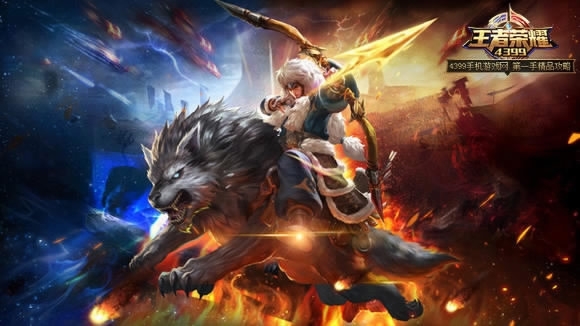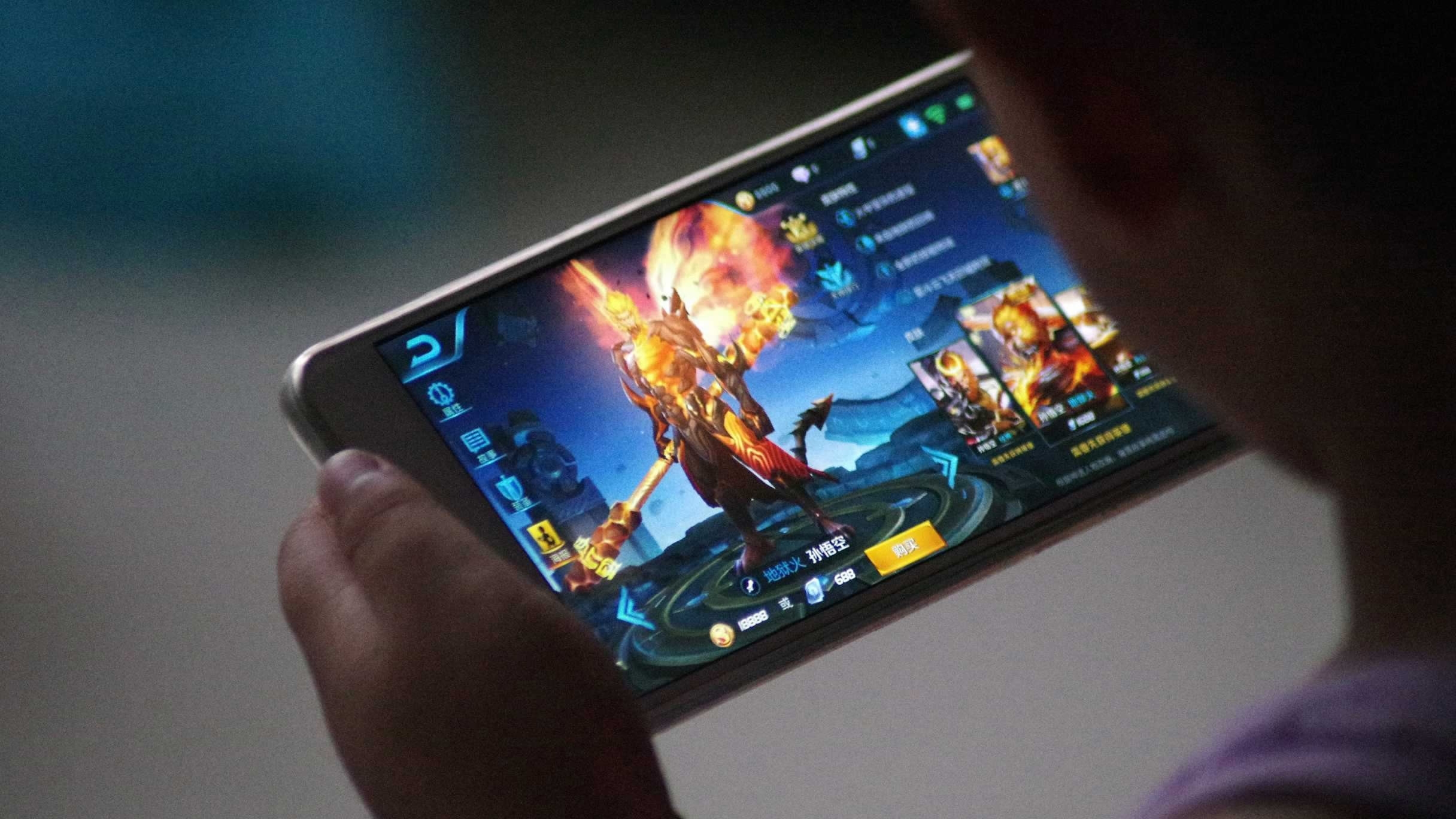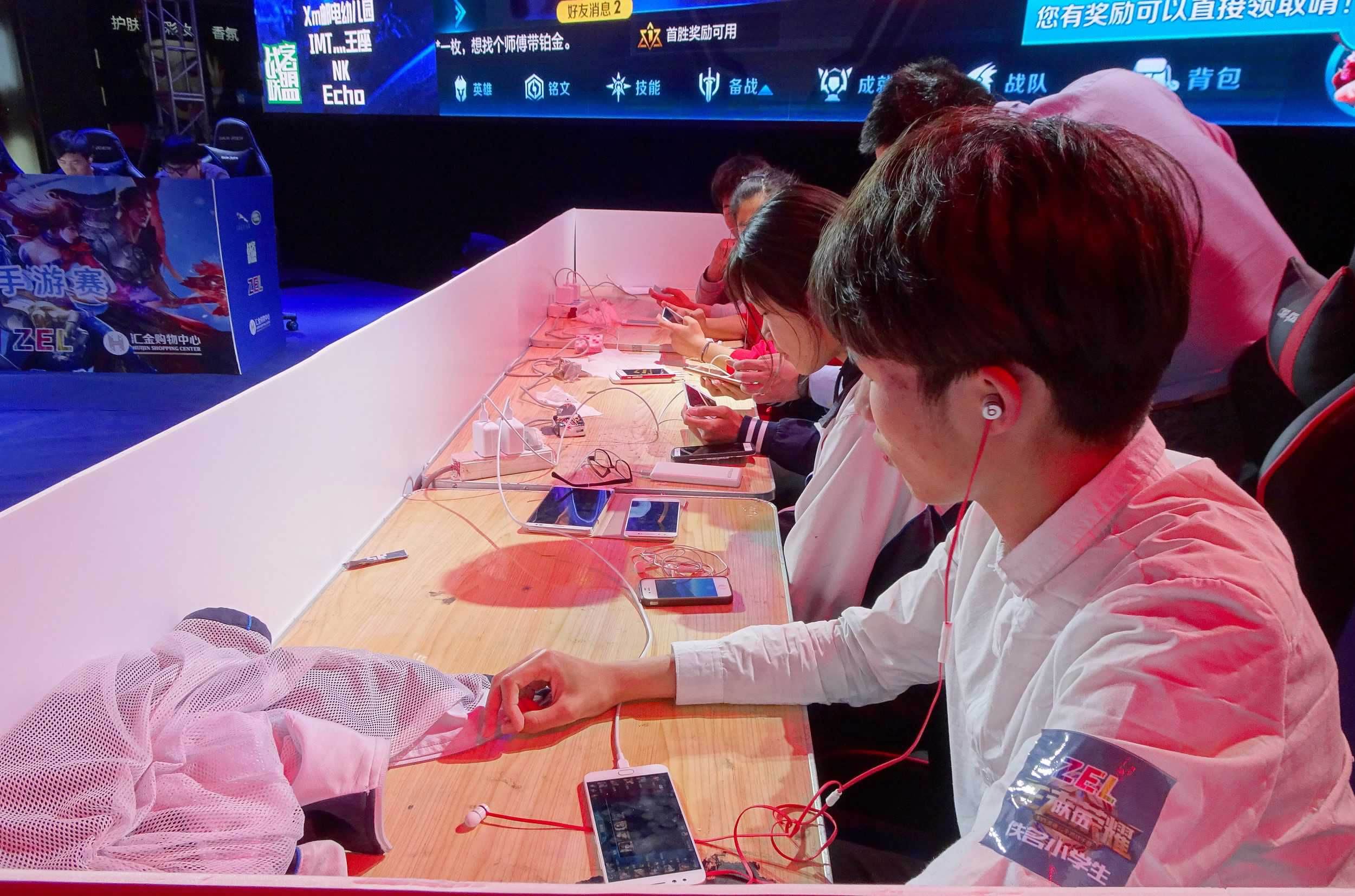****
Why is China so obsessed with mobile gaming?
TECH & SCI
By Natalie Pang
2017-07-09 14:54 GMT+8

Enter any Chinese subway station and you’ll see riders tapping away on their phones. They’re chatting, shopping, reading and catching up on TV. But more often than not, they’re gaming.
China’s gaming industry is big money, and especially so on the mobile platform where market share is increasing. In 2015, mobile gaming raked in some 56 billion yuan (8.2 billion US dollars), a massive increase from just 6.2 billion yuan (910 million US dollars) in 2011, according to iResearch, a Chinese research firm focused on the country’s Internet sector.
Tencent’s immensely popular mobile game Honor of Kings grew to become the highest-grossing mobile game in China on both Android and Apple’s iOS platforms. The company’s 2016 annual report showed the game had over 200 million registered users and over 50 million daily active users – about the population of South Korea. According to Chinese big data service provider Jiguang, those born after 2000 take up 23.31 percent of its user base.
Most recently, the Internet giant had to issue measures to restrict playtime for the game’s young players, after reports of addiction and all-nighter gaming marathons. So what makes it so hard for users to put their phones away?

Nothin’ better to do
"I'm out of work at the moment, so apart from when I'm eating or sleeping I play "Honor of Kings" non-stop until the system kicks me out. A rough estimate would be at least eight hours," 23-year-old Zeng Xiaoxian told Reuters.
Games like Honor of King are easy to get into. Most of them are free to download, but players are often able to pay to upgrade their characters and costumes, or help advance to the next level.
Plus, the mobile platform makes gaming so much more convenient than its console counterpart.
“First of all, I don’t need a computer to game anymore,” said 28-year-old Liang Weiyi (not his real name), a product manager at a foreign car company. “I play 'Honor of Kings' because of its integration with WeChat – you get to often play with your friends.”

"Honor of Kings" promotional image
Battling it out VR style
Some of China’s most popular games are known as Massively Multiplayer Online Role-Playing Games (MMORPGs), like Honor of Kings and World of Warcraft, and they’re just the thing driving the industry.
There are two things that make MMORPGs so enticing: the roleplaying and the sheer amount of people online to play with.
The role-play aspect makes use of a user’s creativity and imagination to create and customize characters, choose where they’ll go and pick what sort of quests to complete. In short, you can do almost anything in a game.
“Honor of King might be easy to get into, but the challenging gameplay is what makes it attractive,” said 31-year-old Zhang Yingqi. “Unlike some games where you can spend money to level up, this game requires your personal intellect and skill.”
Despite the virtual reality of things, it’s still human nature to be at the top of the pack. In a game like Honor of Kings, where users get to battle with other players and go on quests, beating out friends and those around them to be at the top of the leaderboards is something that spurs users on to play.
“Beating my opponents gives me a great sense of satisfaction,” said Zhang. “That’s because you know you’re playing against a real person."

Hello, is it me you’re looking for?
Yet it’s not merely the competitive spirit driving them. With the massive numbers in an MMORPG, users can join big guilds, do various activities within the group, maintain relations and meet new people.
“Of course, beating your friends in the game is much more satisfying than beating a stranger,” says 28-year-old Li Chaoran, an avid gamer who dabbles in other mobile games like Helix Horizon and Tap Titans. “But I think what is much more satisfying is the fact that me and my friends made use of our friendship to cooperate in a game.”
“Today, gaming allows me to improve my friendship with my old friends.”
And as much as it’s about a connection with other people, it’s also about “finding yourself”.
“For youths, one of their most important tasks is self-determination – that is to answer the question of 'who am I'”, said Dr. Lei Li, a psychology professor from Renmin University of China. “Video games allow anonymity, create an identity, and put you on equal footing with other players; and these characteristics can help fulfill the self-development that young people seek.”
“In contrast, many of those users are facing difficulties and limitations in these areas in real life," said Dr. Lei. "Hence for some people, the allure of the Internet is very large.”

The brain wants what the brain wants
The accomplishment and success felt after each quest or battle targets the brain’s reward system, releasing dopamine which gives users a sense of happiness and rush.
Over time, it is possible for the brain to release less dopamine with the same amount of activity, and this in turn spurs users to go for more play time for the same hit.
The mechanics of addiction are straightforward, but there is something often overlooked: the teenage brain is still developing.
That means parts of the brain which are responsible for decision making and impulse control are not fully formed, according to neurologist Frances E. Jensen, author of “The Teenage Brain”, often making teenagers susceptible to addiction.
Dr. Lei acknowledges the sense of accomplishment felt over the internet might not be able to carry over to real life.
“In addition to young people working hard, their family, school, and society should provide more opportunities for them to help meet their growth needs,” said Dr. Lei.

No comments:
Post a Comment